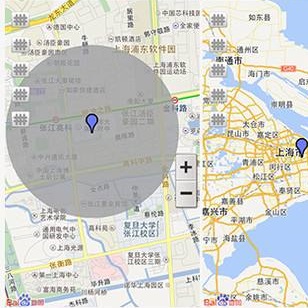Multi-robot simultaneous localization and mapping (SLAM) enables a robot team to achieve coordinated tasks by relying on a common map of the environment. Constructing a map by centralized processing of the robot observations is undesirable because it creates a single point of failure and requires pre-existing infrastructure and significant communication throughput. This paper formulates multi-robot object SLAM as a variational inference problem over a communication graph subject to consensus constraints on the object estimates maintained by different robots. To solve the problem, we develop a distributed mirror descent algorithm with regularization enforcing consensus among the communicating robots. Using Gaussian distributions in the algorithm, we also derive a distributed multi-state constraint Kalman filter (MSCKF) for multi-robot object SLAM. Experiments on real and simulated data show that our method improves the trajectory and object estimates, compared to individual-robot SLAM, while achieving better scaling to large robot teams, compared to centralized multi-robot SLAM.
翻译:暂无翻译




